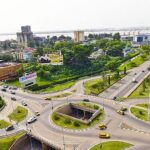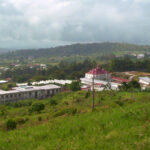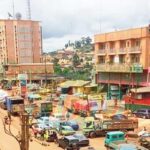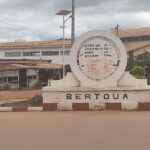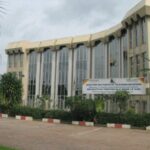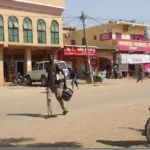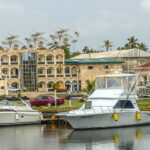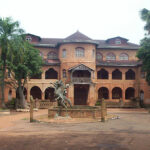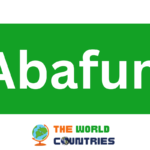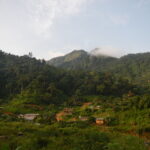Bamenda
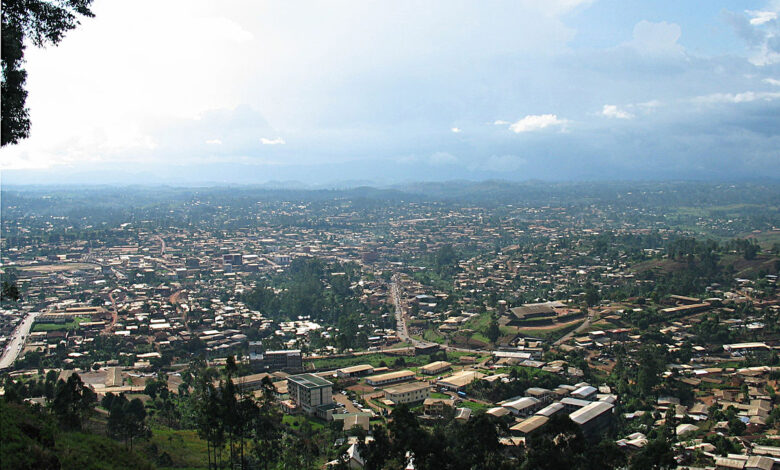
Bamenda is a city located in the Northwest Region of Cameroon, which is a country located in Central Africa. It is the capital of the Northwest Region and is sometimes referred to as the “Switzerland of Cameroon” due to its hilly and mountainous terrain. Bamenda is home to a diverse population, with many different ethnic groups living in the city.
The economy of Bamenda is largely based on agriculture, with crops such as coffee, tea, and bananas being grown in the surrounding areas. The city also has a growing service sector, with businesses such as banks, hotels, and restaurants serving the local population and visitors to the region.
Bamenda is known for its vibrant culture, with traditional dances, music, and festivals taking place throughout the year. It is also a popular destination for outdoor activities such as hiking, mountain biking, and rock climbing, due to its beautiful natural surroundings.
The city is made up of 3 villages; Bamendakwe, Mankon, and Nkwen classified as Bamenda I II and III sub-divisions respectively for administrative reasons. However, it is surrounded by other suburban areas and villages like Bambui, Akum, Bafut, Bali, Chombah, and Mbatu. These suburban areas and villages are fast-growing and sometimes considered part of Bamenda.
| Country | Cameroon |
|---|---|
| Region | Northwest |
| Department | Mezam |
| Government
|
|
| • Mayor | Achobang Tambeng Paul |
| Elevation
|
1,614 m (5,295 ft) |
| Population | |
| • City | 348,766 |
| • Urban
|
2,000,000 |
| (Census) | |
| Time zone | UTC+1 (WAT) |
| Website | Official website |
Geography
The Bamenda Ring Road, a circular route spanning 367 km (228 mi) through the Cameroon Highlands, is located to the north of the city. Mount Oku, towering at a height of 3,000 m (9,800 ft), the Kimbi River Game Reserve, the Menchum River waterfalls, a grand Fon’s palace at Bafut, and a pyramidal thatched shrine at Akum (also known as Bagangu) are some of the notable landmarks that can be found along this route.
Climate
Bamenda has a tropical savanna climate (Köppen: Aw), which is nearly categorized as a tropical monsoon climate (Am). The region’s wet season is long and occurs during the summer, while the winter receives considerably lower amounts of rainfall.
Education
Bamenda city has a wide range of primary and secondary schools that offer general, technical, and vocational training. The city is also home to the University of Bamenda, a state-owned institution that provides Bachelor’s, Master’s, and Doctorate (BMD) programs in various fields. In addition to the university, there are several professional institutes and university institutes within the city.
The Bamenda University of Science and Technology (BUST) was established on October 12, 1995, by the Industrial and Educational Development Company Ltd (INDECO). The late Rt. Hon. John Ngu Foncha founded INDECO and BUST with the support of the Cameroon Government. The university began operations in January 1998 and participated in the development of the Law on Private Higher Education in Cameroon as requested by the government.
BUST is a four-year university that offers degrees in Arts, Science, and Technology, including B.A., BEd, BSc, HND, SRN, AN, Lab. Tech., and Assist. Lab. Tech. The university has established formalities for Post Graduate Studies that became operational by the academic year 2010/2011. BUST is affiliated with the University of Buéa nationally and has partnerships with the University of Dschang, the University of Osnabrück (Germany), and the University of Wales at Bangor. It trains professionals such as college teachers, medical doctors, and graduates in Accountancy, management, marketing, and various other fields of study.
Another notable institution of higher learning in Bamenda is the National Polytechnic Bamenda, formerly known as National Polytechnic Bambui.
